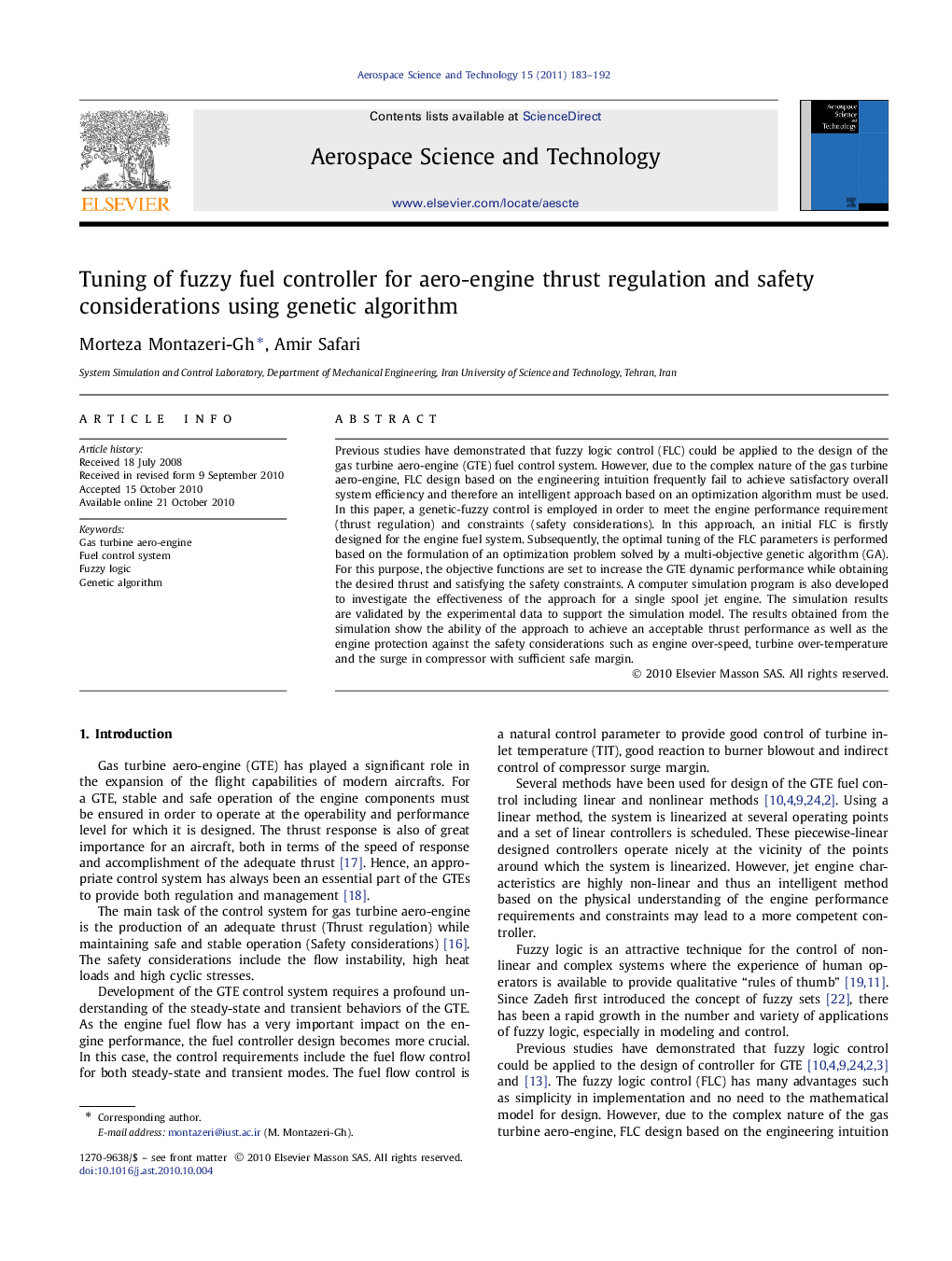| Article ID | Journal | Published Year | Pages | File Type |
|---|---|---|---|---|
| 1718744 | Aerospace Science and Technology | 2011 | 10 Pages |
Previous studies have demonstrated that fuzzy logic control (FLC) could be applied to the design of the gas turbine aero-engine (GTE) fuel control system. However, due to the complex nature of the gas turbine aero-engine, FLC design based on the engineering intuition frequently fail to achieve satisfactory overall system efficiency and therefore an intelligent approach based on an optimization algorithm must be used. In this paper, a genetic-fuzzy control is employed in order to meet the engine performance requirement (thrust regulation) and constraints (safety considerations). In this approach, an initial FLC is firstly designed for the engine fuel system. Subsequently, the optimal tuning of the FLC parameters is performed based on the formulation of an optimization problem solved by a multi-objective genetic algorithm (GA). For this purpose, the objective functions are set to increase the GTE dynamic performance while obtaining the desired thrust and satisfying the safety constraints. A computer simulation program is also developed to investigate the effectiveness of the approach for a single spool jet engine. The simulation results are validated by the experimental data to support the simulation model. The results obtained from the simulation show the ability of the approach to achieve an acceptable thrust performance as well as the engine protection against the safety considerations such as engine over-speed, turbine over-temperature and the surge in compressor with sufficient safe margin.
